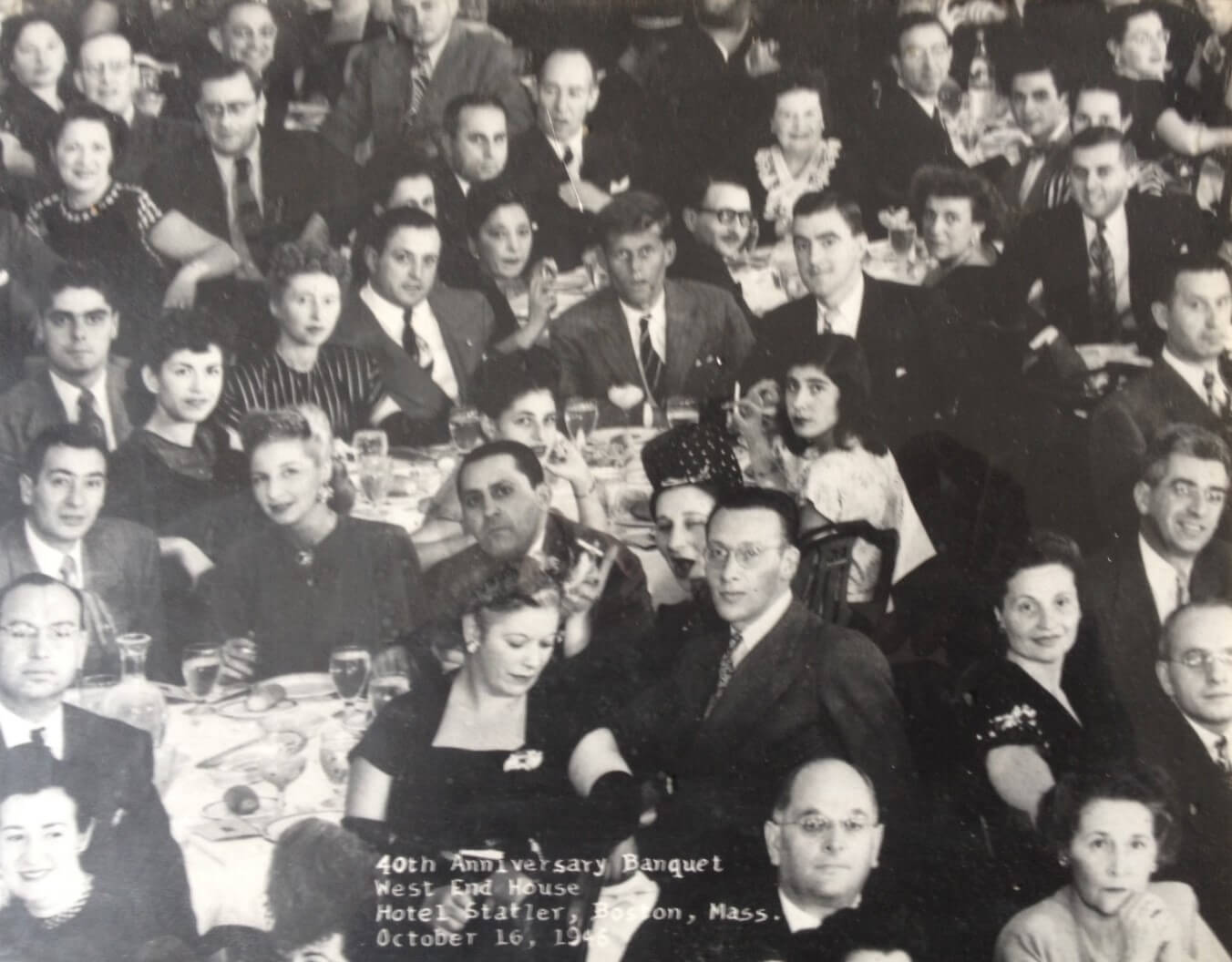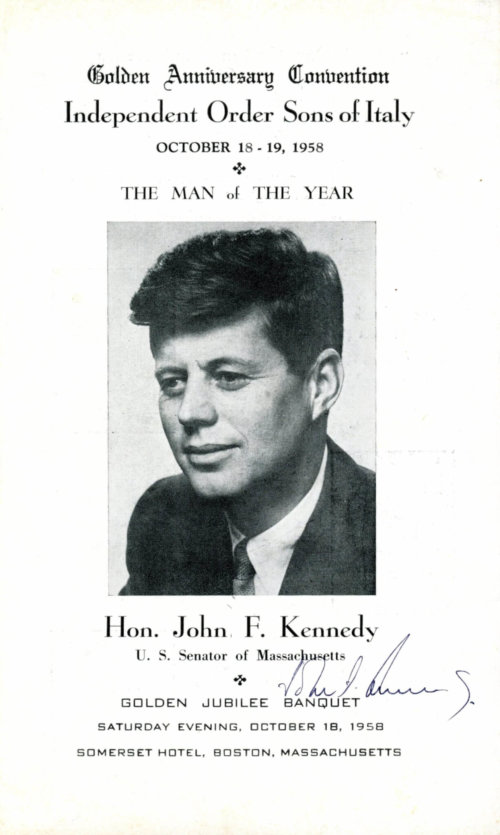John F. Kennedy in the West End
The West End was a backdrop of national history, in addition to local memory. President John F. Kennedy’s life as a veteran and public servant intersected with the West End community in subtle yet significant ways.
President John F. Kennedy (1917-1963) was one of the twentieth-century’s most iconic and influential presidents, and the Kennedy family’s deep connection to the state of Massachusetts is well-known. JFK’s connection to the West End, as a veteran, representative in Congress, and presidential candidate, was a significant part of his presence in Boston.
During World War Two, as a Lieutenant in the United States Navy, Kennedy commanded PT-109, a patrol torpedo boat in the Pacific. When the boat sank after being struck by a Japanese destroyer, Kennedy led the effort to save the lives of virtually the entire crew. Soon after the end of the war, Kennedy met with veterans in Boston at events such as the Veterans of Foreign Wars (VFW) convention held in Boston in September 1946; JFK delivered the event’s opening remarks. West Ender Manuel “Manny” Brown, a decorated World War Two veteran who is now one-hundred-years old, remembers veterans’ meetings with John F. Kennedy, an integral part of his experiences in the West End before moving to Brighton with his spouse in 1946.
Kennedy took up residence in apartment 36 of 122 Bowdoin at the confluence of the Beacon Hill and West End neighborhoods, just across the street from the State House when he returned to Boston after the war. The building, which still operates as a residential structure today, remained his registered voting address for the rest of his life. The apartment served as his headquarters during his 1946 congressional bid, with a second headquarters located at 18 Tremont Street, in what was then Scollay Square (a pre-renewal icon frequented by JFK during his college days).
Kennedy was elected to the House of Representatives in November 1946, as a young standout with war experience and a platform that resonated with organized labor and the general public. He represented the Eleventh District, which included East Boston, Cambridge, Brighton, Somerville, Charlestown, and the North and West Ends. The economic and ethnic diversity of this district (the West End being a quintessential example) meant that Kennedy had to appeal to a broad base of voters to win a majority. He sought advice from local residents to understand the unique nature of each section of the Eleventh District in order to gain a foothold in the political scene. Kennedy had defeated two opponents with the same name, Joe Russo; one Joe Russo was a Boston city councilor, the other a janitor from the West End. Kennedy received 22,183 votes, while Councilor Russo got 5,661, and janitor Russo had 773.
Kennedy was elected to the United States Senate in 1952, defeating Republican Henry Cabot Lodge Jr. for the seat in a close election. The Independent Order Sons of Italy honored Senator Kennedy as its “Man of the Year” at their Golden Jubilee Banquet at the Somerset Hotel in 1958 (pictured right). It was not long before Kennedy ran for president in the 1960 election, beating Richard Nixon for the highest office in the country. The West End connection continues: he and Jackie Kennedy cast their ballots at the West End Branch of the Boston Public Library, then in the basement of the Old West Church on Cambridge Street. A crowd of more than four-hundred people waited to see the Kennedys at the West End polling precinct before the future President and First Lady drove to the airport for a flight to Hyannis, where they would await the results. The BPL closed the original West End branch in 1960 as urban renewal continued on, and the branch has resided at its current location on Cambridge Street since 1968.
Article by Adam Tomasi, edited by Sebastian Belfanti
Source: Beacon Hill Times, National Archives, Boston Globe (November 8, 1960; ProQuest archive), JFK Library, JFK Library – 2, Boston Herald; Curbed Boston; Dissertation: ““Settling Down”: Domesticating World War II Veterans’ Challenge to the Postwar Consensus,” by Robert Francis Saxe (2002)









